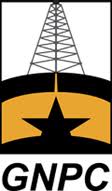Special topics
 In Ghana, until the eighties, petroleum was subsumed within the general framework of mining ventures. A new framework specific to the petroleum industry was developed with the assistance of the United Nations Centre for Transnational Corporations (UNCTC). Ghana in 1982 sought advice from the UNCTC on inter alia, the establishment of a national oil company.
In Ghana, until the eighties, petroleum was subsumed within the general framework of mining ventures. A new framework specific to the petroleum industry was developed with the assistance of the United Nations Centre for Transnational Corporations (UNCTC). Ghana in 1982 sought advice from the UNCTC on inter alia, the establishment of a national oil company.
On 25th August 1982, the PNDC government approved plans to set up a national oil company and in 1983, GNPC was established through the enactment of the Ghana National Petroleum Corporation Act, 1983 (PNDCL 64). It established GNPC as a state-owned entity and gave it legal backing. The Corporation began operating in 1985 and when set up, was empowered under the Act to advise the government on matters related to petroleum operations. GNPC was created as a national oil company, which would in itself, participate in petroleum operations either alone or in partnership with the IOCs.
As there was no specific regulatory body for the industry, the Ministry as the mandated regulator, regulated the industry but relied heavily on GNPC in order to do so as the Corporation possessed the bulk of the personnel with the requisite expertise. In practice, GNPC was the body carrying out the actual regulatory functions under the general direction of the Ministry.
When oil production commenced in Ghana on a large scale in 2010, GNPC’s wielding of both commercial – by virtue of its carried interest in all petroleum operations – and regulatory functions became more manifest. GNPC was cast in the mould of simultaneously being a player as well as the referee. The formation of the Petroleum Commission, the regulatory body of the industry, inter alia, sought to strip GNPC of all manifestations of a regulatory role and make it a purely commercial entity.
The aim became to move GNPC from an era of primarily investments promotion, facilitation and monitoring of operations to one of active commercial player with the goal of eventually becoming an operator. GNPC noted at the time that it aimed to achieve this objective by building institutional capacity, expanding activities, securing adequate capitalization and financial autonomy, reducing administrative bottlenecks, and adapting good corporate governance practices that would position it to compete with the IOCs.
The overarching strategic objective of GNPC is to be a stand-alone operator by 2019 and a world-class operator by 2027. GNPC aimed to achieve this through its Exploration and Production Company Limited (Explorco) – GNPC’s subsidiary (exploratory arm) – as well as pioneering work in the Voltaian Basin.
Thus, in furtherance of the first driver for achieving this objective, on 4th December 2013, Parliament ratified an agreement between the Government, GNPC, and AGM Petroleum Ghana Limited in respect of the South Deepwater Tano (SDWT) Block situated in the prolific Tano Basin. Operations were to be carried out through a Joint Operating Committee (JOC), with the equity ownership being 34% for Explorco, and 66% for AGM.
A distinctive feature of this petroleum agreement was that the goal was to develop GNPC into an operator. Thus, just as the Norwegian oil company Statoil was granted the right to replace Mobil as operator of the lucrative Statfjord Field ten years from operation, the agreement provided for Explorco to do likewise in respect of the highly prospective SDWT Block which has extensive data on it and lies within an area where there have been discoveries. Unfortunately, due to the maritime boundary dispute between Ghana and Cote D’Ivoire, which affected a large portion of the acreage, the project stalled.
In January 2018, Ghana signed an agreement with ExxonMobil in respect of Deepwater Cape Three Points Block Offshore of Ghana. There is an obligation placed on ExxonMobil to upgrade the operational capacity of GNPC and it is hoped that it will build its capacity significantly in order to be an operator one day.
Further, GNPC is pioneering works on the inland Voltaian Basin under an initial five (5) year exploration programme from 2015-2019 to establish the prospectively of the Voltaian Basin. However, lack of project management expertise and commitment to the project, as well as procurement delays, have all affected the timelines for implementation. Thus, in respect of the objective of being a stand-alone operator by 2019, GNPC does not appear on course to achieve this by the set date.
In respect of gas, GNPC is playing a lead role in ensuring a viable domestic market for natural gas. It is currently the national gas aggregator. Thus, GNPC is the mandated buyer and seller of all gas (indigenous gas and LNG) in the country. It sells the commodity to Ghana Gas Company Ltd. and independent power producers (IPPs) for power generation.